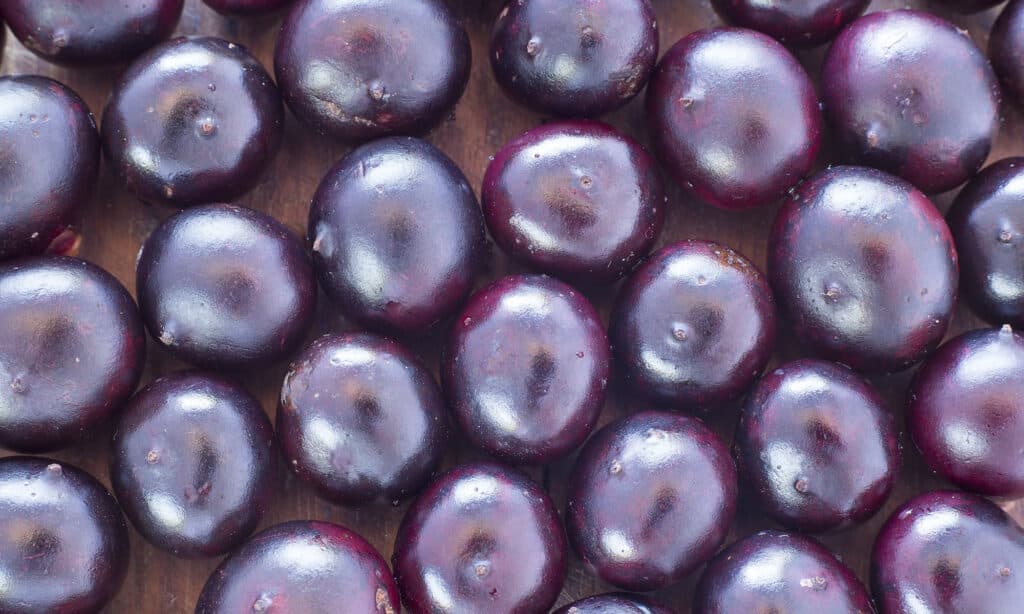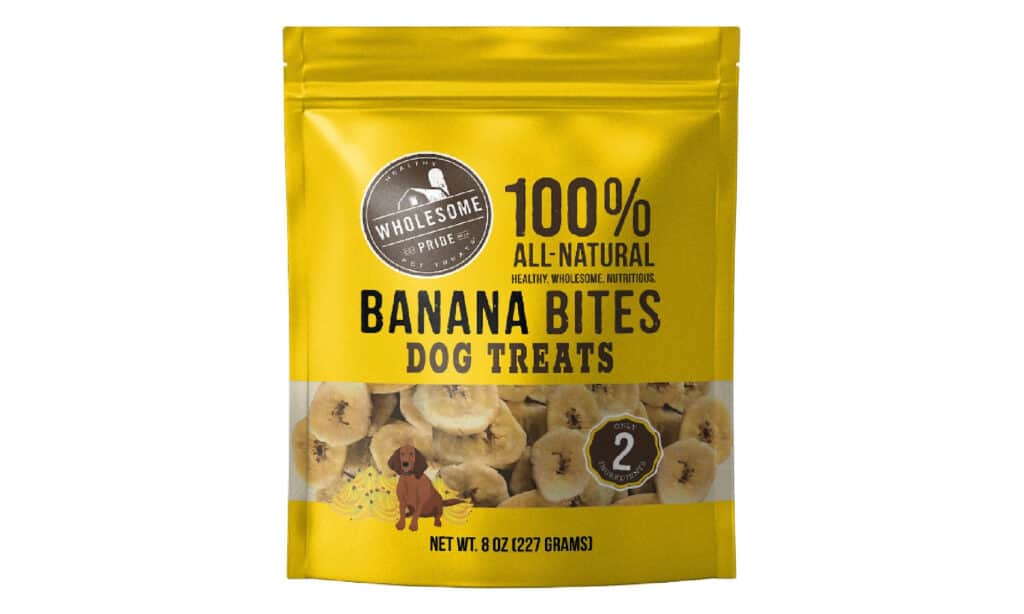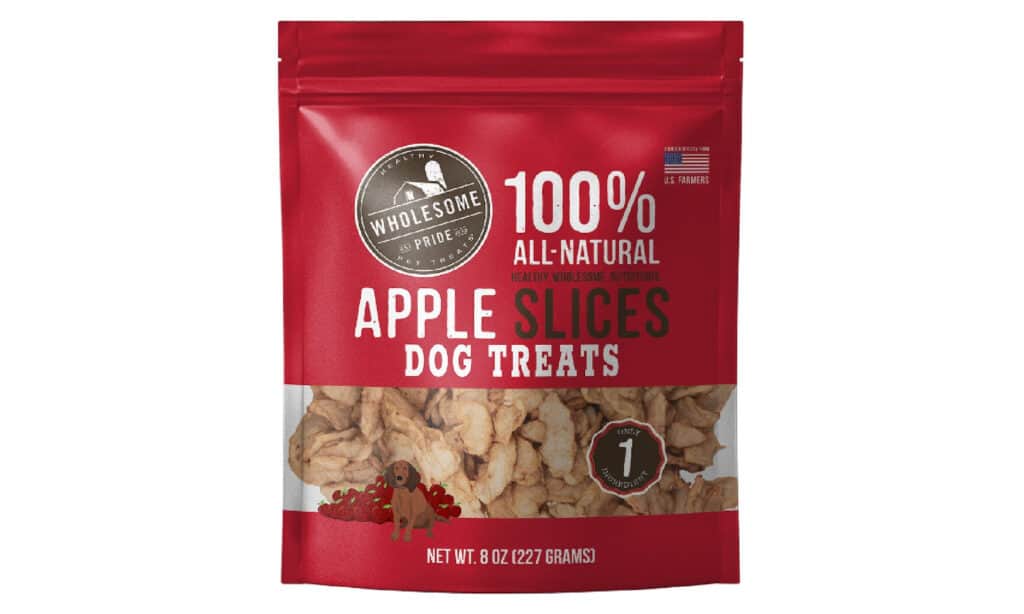As the popularity of acai berries as a superfood continues to grow, more and more people are incorporating them into their diets. But what about our furry friends? Many dog owners wonder if it’s safe to feed acai to their pets, and if so, how much is too much. As a responsible pet owner, it’s important to be aware of the potential risks and benefits of feeding your dog acai. We’ll discuss if dogs can eat acai and its safety in this post. We’ll also discuss how much acai is toxic for dogs and what to do if you suspect your dog has consumed too much acai. So, whether you’re an acai lover or a concerned pet owner, read on to learn more about the safety of acai for our four-legged companions.

What is Acai?
Have you heard of acai? It’s a type of fruit that grows on the acai palm tree, which is native to the Amazon rainforest in South America. Acai berries are a “superfood” due to their high nutrient content, including antioxidants, fiber, and healthy fats. Acai is in health foods like smoothie bowls, bars, and supplements.
Now, while acai might be a healthy fruit for us humans, it’s important to remember that our furry friends have different nutritional needs. Dogs are mostly meat-eaters and require a diet that’s high in protein and fat. That being said, you can still give your dog acai as an occasional treat, but don’t make it a regular part of their diet. It’s also important to be mindful of the potential risks of feeding your dog too much acai. We’ll examine if dogs can eat acai, risks and benefits in next section.
Can Dogs Eat Acai?
Many dog owners wonder if it’s safe to feed their pets acai. The short answer is yes, dogs can eat acai, but it should be given to them in moderation. While acai offers some nutritional benefits, it’s important to remember that dogs have different dietary needs than humans. Dogs are primarily carnivorous and require a diet that’s high in protein and fat. Acai should be considered a treat rather than a staple food in your dog’s diet.
It’s also important to be aware of the potential risks of overfeeding acai to your dog. While there’s no evidence that acai is toxic to dogs, too much of it can cause digestive issues, such as diarrhea or vomiting. Some acai products may have unsafe ingredients for dogs, like added sugars or supplements.
Overall, while dogs can safely eat acai, it should be given in moderation and as a treat rather than a regular part of their diet. Next, we’ll examine acai toxicity in dogs and what to do if they consume too much.

How Much Acai is Toxic to Dogs?
While acai is generally safe for dogs to eat, overfeeding it to your pet can cause digestive issues. If your dog consumes too much acai, they may experience symptoms like vomiting, diarrhea, or abdominal pain. However, there is no evidence that acai is toxic to dogs, and serious cases of acai toxicity are extremely rare.
To prevent these symptoms, it’s important to give your dog acai in moderation. Treat acai as a supplement or a snack and avoid giving your dog large amounts of it, especially if they have never eaten it before. Some acai products may have unsafe ingredients for dogs, like xylitol or caffeine. Always check the labels of acai-containing products before giving them to your pet.
If your dog shows any signs of digestive upset after eating acai, it’s best to contact your veterinarian. They can advise you on the appropriate steps to take based on the severity of your dog’s symptoms. In most cases, mild cases of acai overfeeding can be managed at home with supportive care, such as hydration and a bland diet. Severe acai toxicity may need medical help, so be cautious when giving new foods to your pet.
What Should You Do if Your Dog Eats Acai?
If your dog eats acai, there’s usually no need to panic. Acai is safe for dogs, but be mindful of overfeeding to avoid risks.
If your dog eats a small amount of acai and shows no symptoms of digestive upset, then there’s no need to take any action. Contact your vet if dog consumes excess acai or shows vomiting/diarrhea symptoms.
Your vet may recommend monitoring your dog’s symptoms at home and providing supportive care, such as hydration and a bland diet. A checkup may be recommended to ensure no health issues causing symptoms in your dog.
It’s also important to be mindful of the other ingredients in acai-containing products. Some products, like supplements or smoothie bowls, may contain other ingredients that are not safe for dogs to consume, such as xylitol or caffeine. If your dog consumes any of these products, you should contact your veterinarian immediately.

Dog Safe Alternatives To Acai
While acai berries are known for their many health benefits for humans, they may not be the best choice for our furry friends. Acai berries are high in sugar and can be difficult for dogs to digest. Fortunately, there are many other delicious and nutritious fruits that dogs can enjoy safely. Here are some dog-safe alternatives to acai:
- Blueberries: These tiny superfoods are packed with antioxidants, fiber, and vitamins. Plus, many dogs love the sweet and tangy flavor of blueberries.
- Apples: Apples are low in fat and high in fiber, making them a great choice for dogs. Just be sure to remove the seeds and core before giving them to your pup.
- Bananas: Bananas are a great source of potassium and fiber, and many dogs enjoy their sweet, creamy taste. Just be sure to feed them in moderation, as they are high in sugar.
- Strawberries: These juicy berries are a great source of vitamin C and fiber, and many dogs enjoy their sweet, tangy flavor.
- Watermelon: This juicy fruit is a great source of hydration for dogs, as it is mostly water. Plus, many dogs love the refreshing taste of watermelon on a hot day.
When feeding fruits to your dog, be sure to remove any seeds or pits and cut them into small pieces to prevent choking. Also, keep in mind that fruits should be fed in moderation as too much of any fruit can cause digestive upset. With these dog-safe alternatives to acai, your pup can enjoy the many health benefits of fruits in a safe and delicious way.
Healthy Store-Bought Alternatives

Conclusion
In conclusion, while dogs can safely eat acai, it should be given to them in moderation and as a treat rather than a regular part of their diet. Although acai offers some nutritional benefits, dogs have different dietary needs than humans, and their diet should primarily consist of protein and fat. Overfeeding acai to pets can cause digestive issues. Be mindful of the risks.
If you’re considering giving your dog acai, it’s always best to check with your veterinarian first. They can advise you on the appropriate amount to feed your pet based on their individual needs and overall health. Avoid acai products with added sugars or ingredients unsafe for dogs.
Overall, acai can be a healthy and tasty addition to your dog’s diet when given in moderation. By following these guidelines and being mindful of your pet’s needs, you can safely incorporate acai into your furry friend’s diet and provide them with a tasty and nutritious treat.
~Sheena



